The original house consisted of two volumes, the one in contact with the main facade and a barn that occupied the bottom of the lot. The free space between these, which was necessary to give breath to the house, was occupied by various added elements over time. Horma Estudio's design aims to respect the existing architecture by enhancing the original elements and eliminating those additions that make it difficult to read the initial space
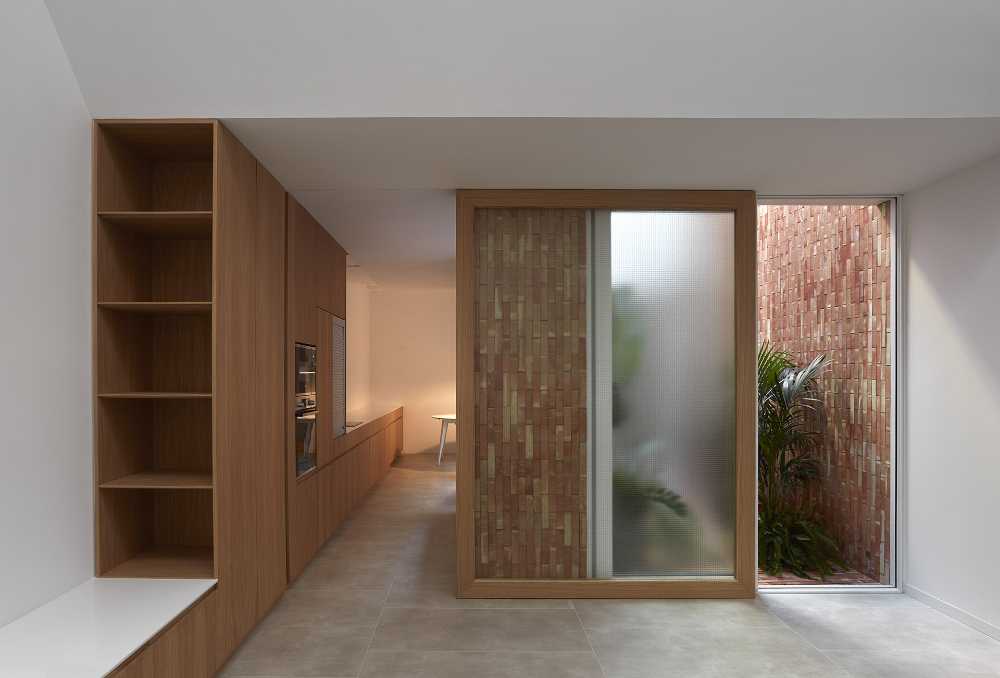

AM House. Some old facade that conceals a residential revival
The imagination of two friends and their two daughters makes AM House reinterpret the space of a house in the center of the city of Vila-real. A space attentive to the needs of a new generation without forgetting the past that still lingers. The spatial fluidity and warmth of materials together with the guidance of natural light show how to inhabit the house
- #Europe
- #Spain
- #Architectures
- #Building recovery
- #Residence
- #Habitation
- #Restyling
- #Renovation
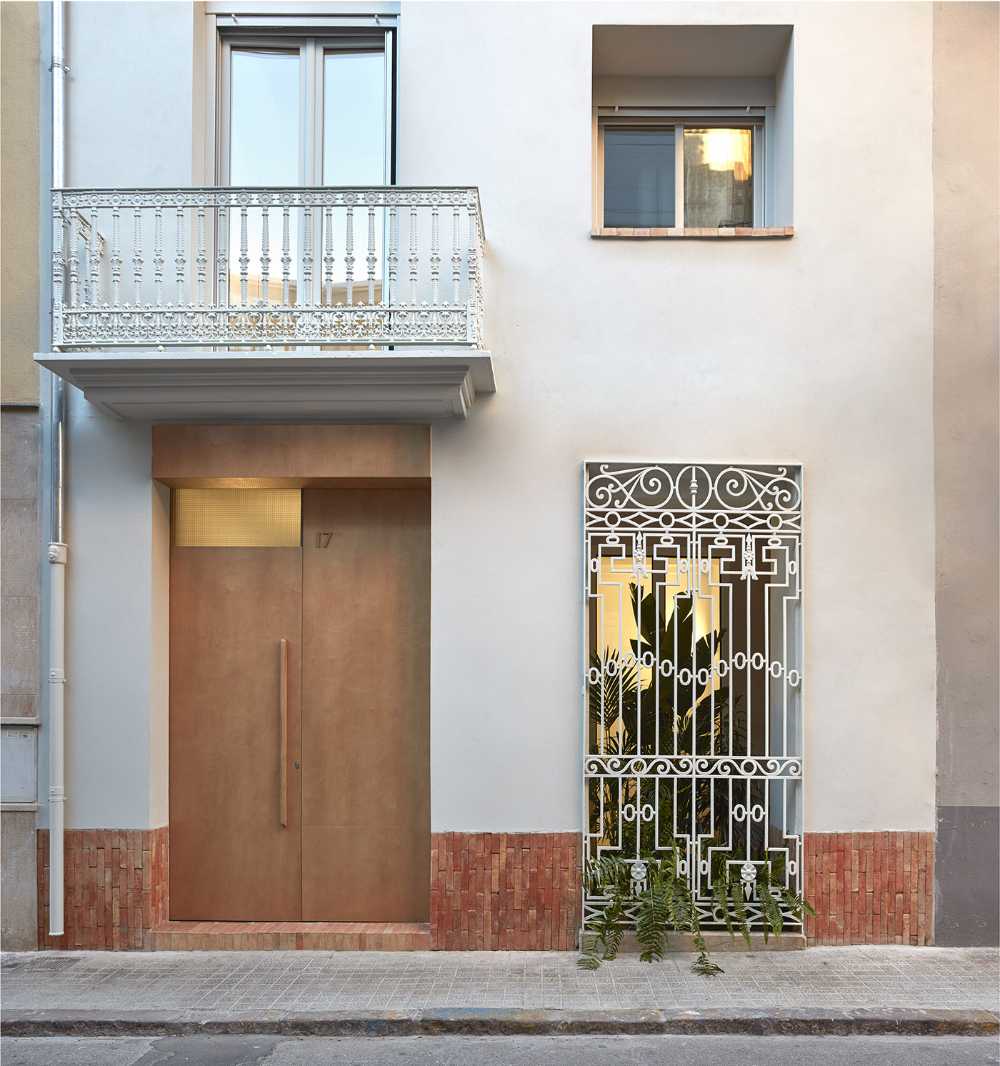
After the first "liberating" do, the project has the task of connecting the two volumes to accommodate the required domestic program and give an overall meaning to the space. To do this, the patio is used, which becomes the main element that can illuminate, articulate the spaces and give the house the necessary character, establishing a dialogue between the past, present and future
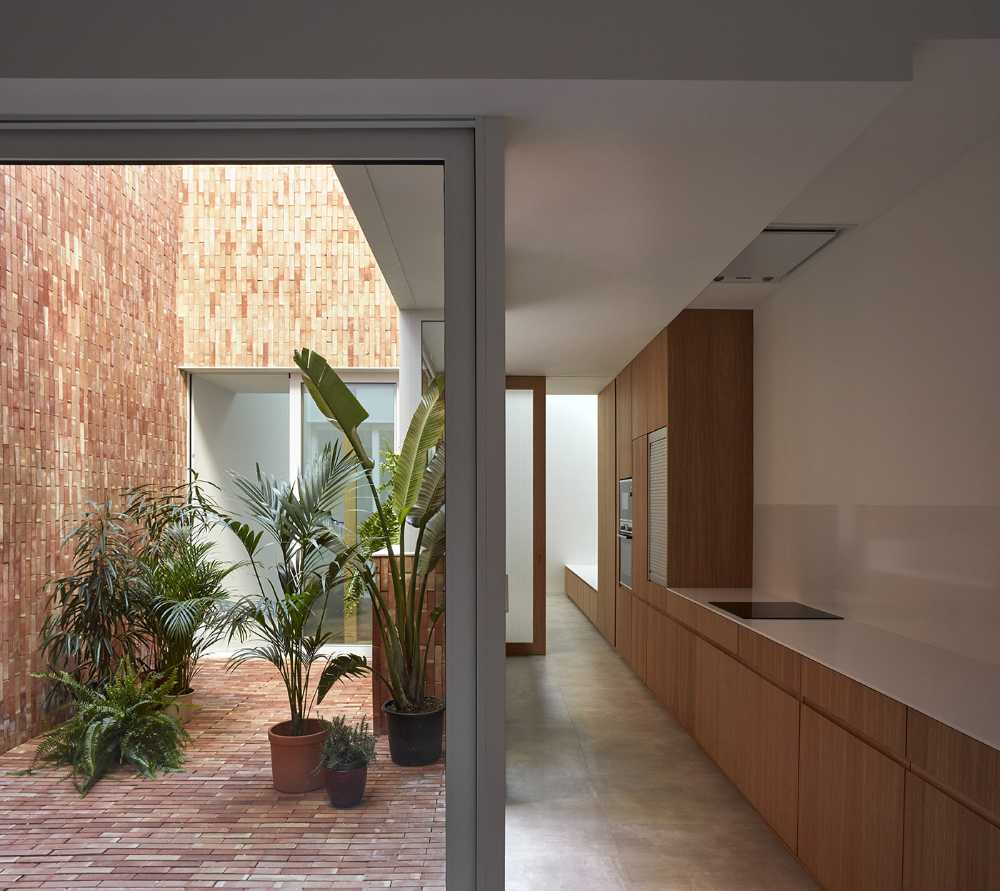
The ground floor of AM House houses the public part of the dwelling, developed for the whole extension of the building in its 5 meters wide by 22 meters long. The proposed spatial sequence is intended as a single space that in each of its parts has a specific dimension and linked to different functions. It is the patio that shapes and gives meaning to the sequence: a space of contemplation, but also functional, defined more by the materials that compose it than by physical partitions being conceived as an intentionally diffuse space to connect with adjacent rooms
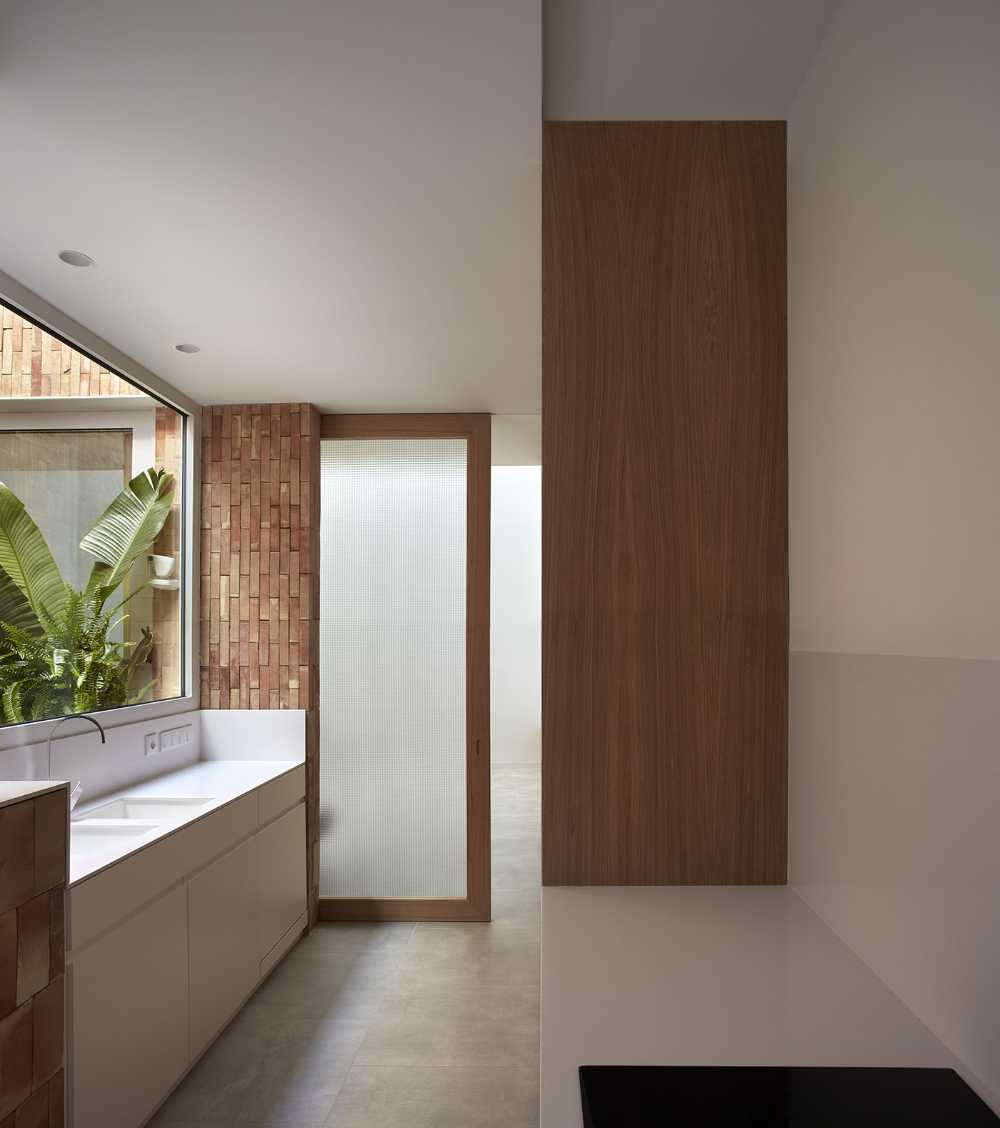
The upper floors house the more private spaces, the rooms on the second floor and the studio on the top floor, under the original wooden roof and connected to a terrace that allows the ground floor patio to be revived. The redevelopment of the façade, far from altering the existing geometric rhythms, intervenes in the depth of the street window on the ground floor, replacing it with a breakthrough inhabited by lush plants that improve the privacy of the house and allow the window to be opened safely, enabling the ventilation of the entire public area
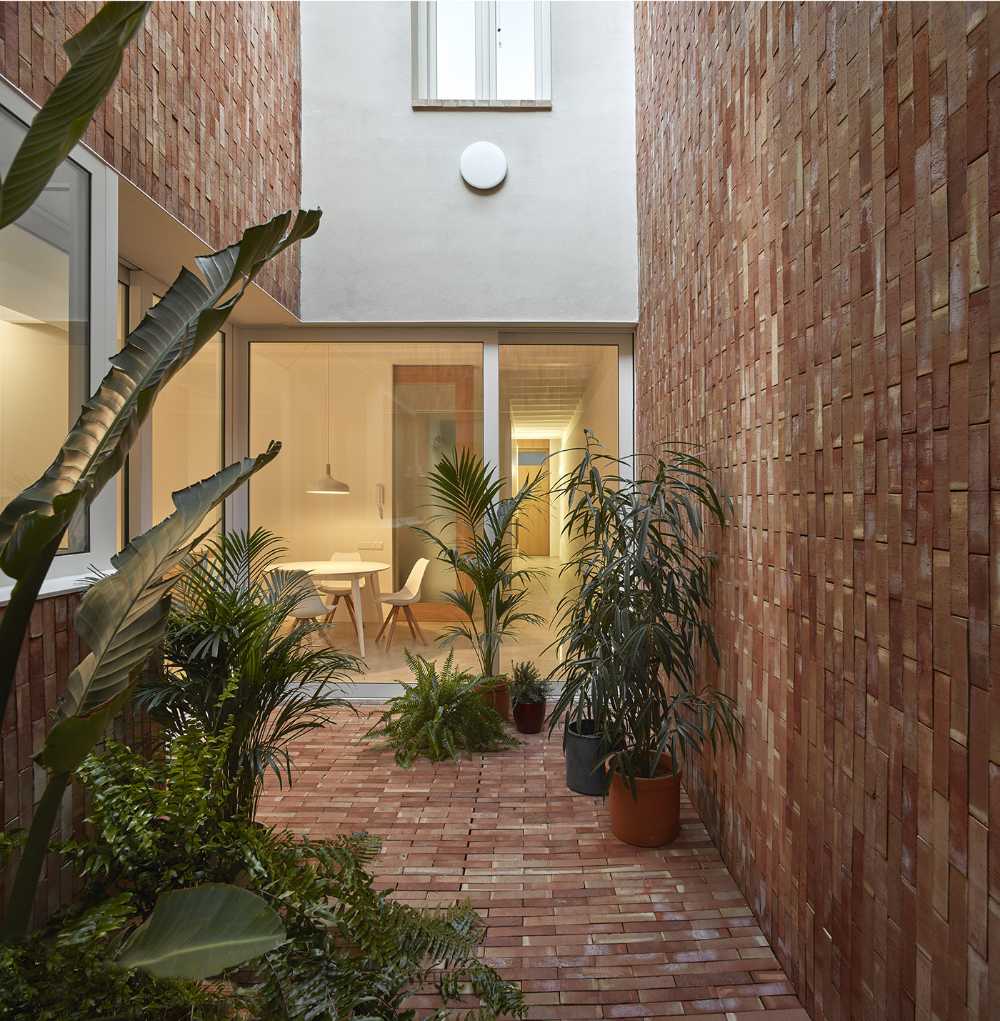
Gallery
Photo credits
Top image, content and gallery images: Mariela Apollonio - Fotógrafa de Arquitectura














